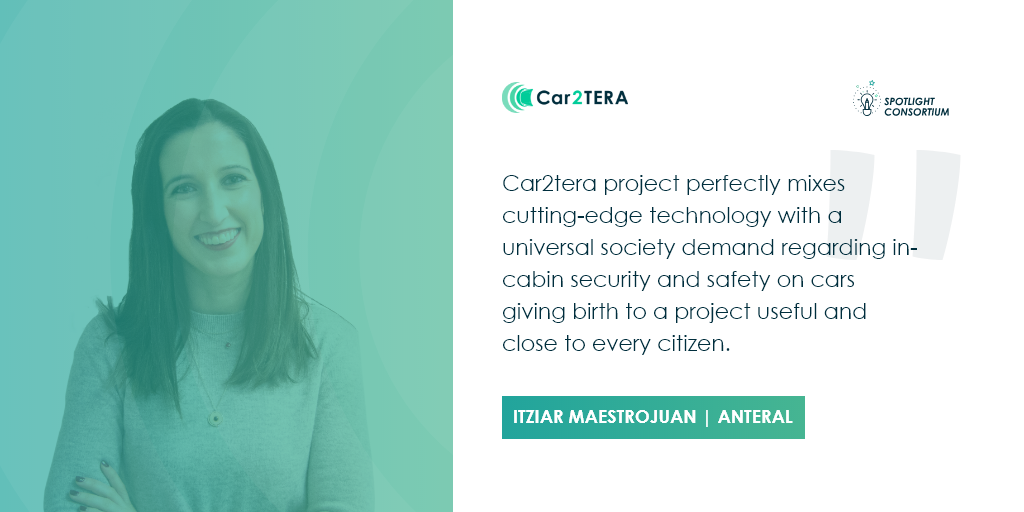Today in a talk with Itziar Maestrojuan- 5 questions about herself and the Car2TERA H2020 project.
Introduce yourself and tell us a bit about your background.
I was born in Pamplona (Spain) in 1986. I received the Engineer degree in Telecommunications from Public University of Navarra, Pamplona, (Spain) in 2010. In 2011 I did a Master in Communications at the same university. In 2015, I obtained a Ph.D. degree, cum laude, in Communications at Public University of Navarra, Pamplona (Spain).
Since 2010, I was a Ph.D student and junior researcher at the Antenna Group of Public University of Navarra. From September 2011 to April 2012, I was also working as visiting research scientist in RAL Space at Rutherford Appleton Laboratory at Harwell Oxford, UK. In 2014, I joined the Anteral Team as R&D Engineer. In 2015 I became the CTO of the THz department which was later called the Radar Department. From the end of 2018 I am the Anteral’s CEO.
The research lines I make are focused on the development of mw-wave and THz receivers, antenna and radar technology development. I am a contributor author to the book “Semiconductor THz Technology”, I have published several international journal papers and more than 25 national and international conference papers. I am a reviewer of R&D projects for the European Commission. Also, I am one of the developers of uRAD: Universal Radar, brand under which Anteral has included all the radar technology development. I am one of the women innovation examples of the “Innovactoras” program promoted by Maria Beunza and Happening consulting.
What is your title and/or role in the project?
I am involved in the managing activities of the project regarding the Anteral´s work.
What are your contributions to the project? (Specify what deliverables and/or tasks you are responsible for)
Anteral is involved on primary and secondary demonstrators with the aim to implement the antenna solution for the in-cabin monitoring and the THz-over-plastic interposer solution for short distance interconnects in 5G radio base stations.
What challenges can you foresee in the project?
The project is focused on two different and important applications that would require of great research and innovative ideas and solutions. Moreover, the final results should be attractive for the car industry and therefore, should have a low cost in order to be feasible for the final client. This for sure, increases the complexity of the proposed solutions.
How do you think the project outcome could affect our daily life?
In my opinion, Car2tera project could clearly improve car driving safety. Nowadays, autonomous cars are almost a reality. This would require of high data rate connections and communications and Car2tera will deeply study that. Moreover, driver and passengers monitoring would increase they security during driving time but also many other applications that would be of interest for the new car generation.
